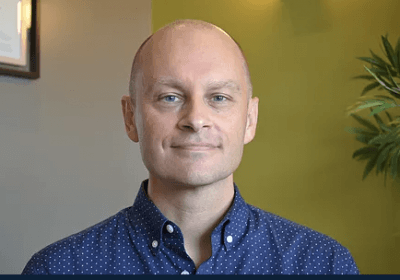photo by Karolina Grabowska for Pexels
by Rob Stanley
How to survive a recession economically is one thing. We also need to consider our mental wellbeing. What can we do to make sure we’re still engaging in self-care even when money is tight?
The link between finances and happiness
Though it can feel inappropriate to admit, the truth is that financial security is directly connected to good mental health.
A recent paper in the journal Social Psychological and Personality Science puts this clearly when it concludes, “although money may not necessarily buy happiness, it reduces the intensity of stressors experienced in daily life—and thereby increases life satisfaction.”
This highlights the importance of guarding and prioritising our mental health even when our economic situation is strained.
That being said, we shouldn’t form the blanket conclusion that money alone is the key to happiness. Yes, it is a strong component of living a less stressful life. But the true answer to the question ‘What makes us happy?’ is much more complex.
What ultimately makes us happy?
An American study on pursuing happiness concluded that while 60 per cent of our happiness comes from uncontrollable factors such as circumstances and genetics, the other 40 per cent is the result of intentional activity on our part.
This means that while we face different circumstances and challenges in life, we all have the capacity to push back against tides of unhappiness to some extent when they arise.

photo by Juliane Liebermann for Unsplash
The key to excelling in financially difficult situations then, is to realise that while money is a definite factor in influencing the opportunities which are available to us? A large part of our personal happiness is ultimately in our own hands.
How to survive a recession? Look to self-care
In her publication on Happiness and Self-care, clinical professor Gina Merlo concludes that emphasising self-care means we “manage stress and enhance overall happiness”.
Self-care evidently goes far beyond taking a day off or the advertised version of spending a day at a spa.
A paper on self-care amongst doctors wisely points out that self-care is multi-faceted and is any strategy we use to take better care of our physical, intellectual, emotional, spiritual or social selves.
The paper then concluded that the most relevant core element of self-care which needs to be present in order for us to flourish is a strong sense of self-awareness.
Self-awareness as a key to self-care
A core thing to remember about ourselves as individuals is just that…we are individuals.
The self-care steps which one person uses will not necessarily resonate with others. We need to understand what elements need to be present in order for us personally to truly relax and de-stress.
A key way to know this is to give yourself permission to ask—and answer—the question: ‘What would truly make me happy today?’
This is not a question which should be asked in a fantastical way with answers involving winning the lottery or striking it rich in the market. Instead, we should consider our true financial circumstances, consider our true selves, and ask ourselves what commonsense activities we could implement to help increase our happiness levels.
This might mean going to the zoo…or starting a jigsaw puzzle…or standing up for ourselves at work. It could be any one of a million possibilities. The only key is that it should be a step which we take voluntarily with an eye on speaking to our own unique personality.
Thrive in a recession by changing routines

photo by Priscilla du Preez for Unsplash
Routines are amazing things which help wire our brains to complete repetitive tasks effectively.
And yet a 2017 study in the journal Personality and Individual Differences revealed that people who rely on habit and routine to accomplish tasks can sometimes display higher levels of anxiety than those who change up their routines.
This was further supported by an interesting study looking at how curiosity in daily life affects our wellbeing.
The study discovered that people who explore new ways of completing tasks are generally more goal-oriented and experience better moods than people who rely on habit alone.
What these studies reveal is that when we rely on routines we can lose our sense of resilience by limiting the amount of new experiences that we face.
So, as we face the task of reimagining self-care and enjoyable activities, one of the greatest gifts we can give ourselves is the chance to change our routines and explore new avenues.
How to tweak routines to improve mental health in a recession
What can changing our routines to improve our mental health look like in practise?
1. Change the time of your activities.
- get up earlier to be more productive in the morning
- take a midday break for new activities (such as exercise or household chores)
- work hard to make weekends times of anticipation and exploration instead of times of habit and routine.
2. Change the location of our activities.
- vary routines to include factors such as fresh air, sunshine, different sounds or landscapes in order to inspire new experiences
- combine mundane activities with more energising locations (i.e. work at the coffee shop; make a long overdue phone call while out on a walk)
- explore a ‘third place’ to add a new geographic twist to your activities (a library, community centre, etc.).
3. Change the social circle of our activities.
- complete a task alone instead of in a group, or in a group instead of alone depending on your usual habit
- move out of your social comfort zone and do something completely out of character in order to expand your social horizon, such as volunteering.
4. Pivot to more meaningful activities.
Perhaps the most relevant answer to the question, “How to survive a recession with our mental health intact?” is found in the recent book Principles of Medical Professionalism. Author Gia Merlo points out the need for people to engage in more meaningful activities as a means of avoiding negative patterns and emotions.
This shift toward an increase in meaning is a crucial part of self-care because the search for meaning is tied to the deepest values we hold as people.
As we explore differing ways to engage in self-care, it is then vital for us to consider the things that we hold most important—our faith, our family. Our charitable endeavours, or any other cause we believe in deeply.
By implementing this change, along with the other self-care strategies discussed here, we can go a long way toward re-setting our view of daily happiness as we weather the economic storms around us.
Need support with your mental health? We connect you to a team of some of London’s most experienced and well-regarded talk therapists who can help with money stress. On a budget? Our therapy listing site includes UK-wide therapists at affordable rates.
 Rob Stanley, RP is the founder and lead therapist at Whiteboard Counselling in Oakville, Ontario. He is also the creator of the CRPO Exam Video Training Course.
Rob Stanley, RP is the founder and lead therapist at Whiteboard Counselling in Oakville, Ontario. He is also the creator of the CRPO Exam Video Training Course.
FOOTNOTES
1. Jachimowicz, Jon M., et al. “The sharp spikes of poverty: Financial scarcity is related to higher levels of distress intensity in daily life.” Social Psychological and Personality Science 13.8 (2022): 1187-1198.
2. Lyubomirsky, Sonja, Kennon M. Sheldon, and David Schkade. “Pursuing happiness: The architecture of sustainable change.” Review of general psychology 9.2 (2005): 111-131.
3. Merlo, Gia. “Happiness and Self-Care.” Principles of Medical Professionalism. Oxford University Press, 2021.
4. Sanchez-Reilly, Sandra, et al. “Caring for oneself to care for others: physicians and their self-care.” The journal of supportive oncology 11.2 (2013): 75.
5. Ersche, Karen D., et al. “Creature of Habit: A self-report measure of habitual routines and automatic tendencies in everyday life.” Personality and Individual Differences 116 (2017): 73-85.
6. Lydon Staley, David M., Perry Zurn, and Danielle S. Bassett. “Within person variability in curiosity during daily life and associations with wellbeing.” Journal of personality 88.4 (2020): 625-641.


